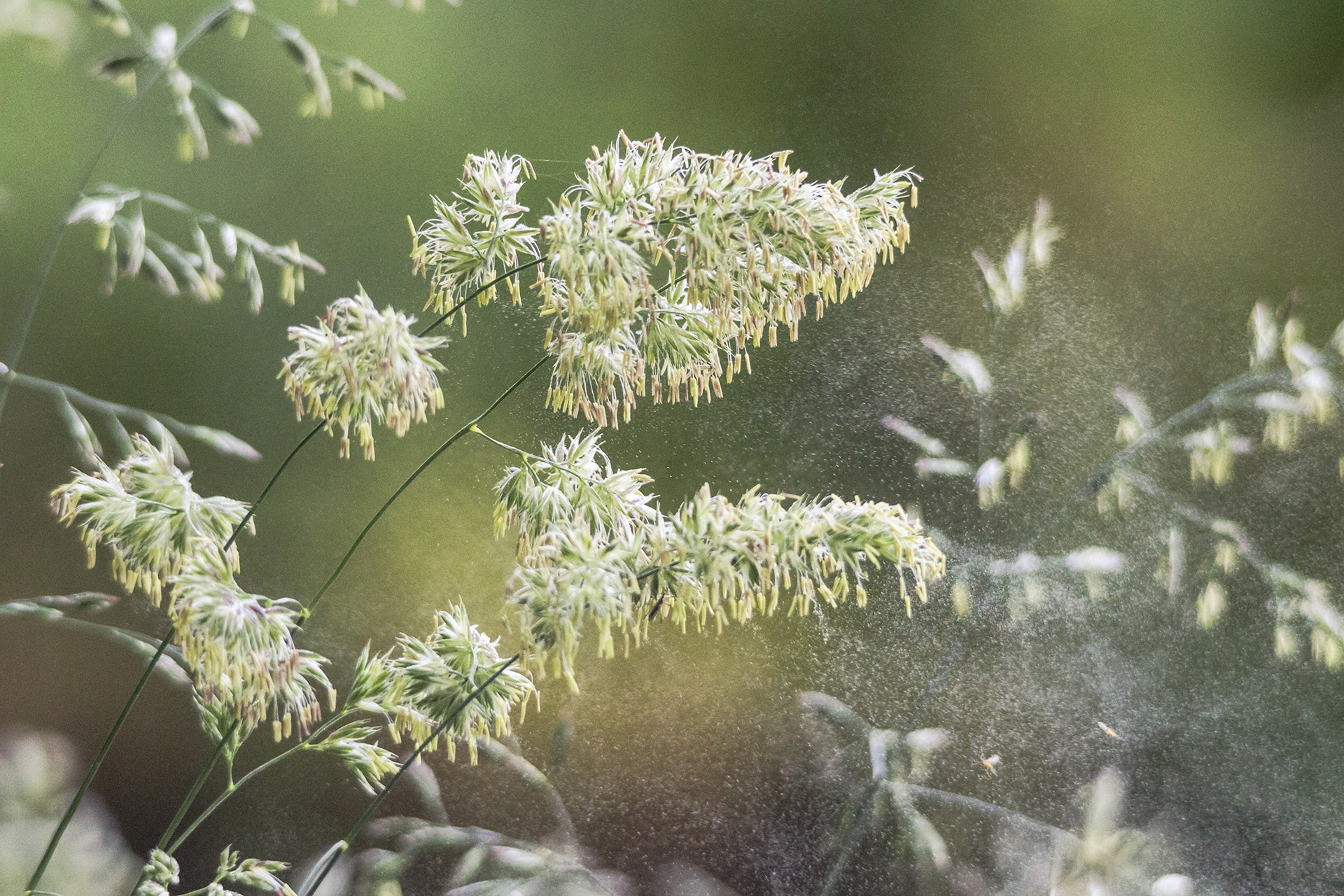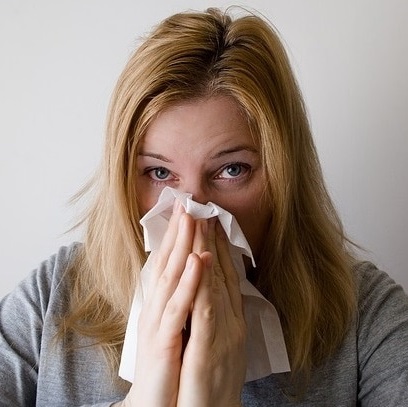Allergies can cause a variety of uncomfortable symptoms, including sinus pressure, nasal congestion, sneezing, and itchy eyes. If you are like most individuals who suffer from allergies, you have probably tried a variety of over-the-counter medications. Unfortunately, some of these medicines lead to unpleasant side effects including dizziness, drowsiness, dry mouth, and blurred vision. There are several natural antihistamines for allergies that are effective for relieving your allergy symptoms without the side effects.
What Are Antihistamines?
To understand how antihistamines work, it helps to know what causes allergies. Allergies are simply an immune response to a harmless substance like dust, pollen, or animal dander. When exposed to an allergen, the immune system signals most cells in the mouth, throat, nose, blood, gut, lungs, or intestines to release histamines. Histamines increase blood flow to the area of the body that has been affected by the allergen. This increase in blood flow causes inflammation to help protect the surrounding cells from the allergen. Furthermore, histamines prompt special receptors to clear the allergen from the body. When an allergen such as pollen penetrates the nasal passages, mucus membranes elicit an increase in mucus, promoting a stuffy or runny nose, and sneezing.
An antihistamine blocks the effects of histamines in the body and can reduce the amount of histamine produced. Antihistamines are used to treat the symptoms of allergies, including hives, runny nose, congestion, cough, sneezing, and itchy watery eyes. Below are some common natural antihistamines for allergies.

Quercetin
Quercetin is a naturally occurring flavonoid that offers antihistamine and anti-allergic properties. Quercetin comes from a variety of herbs and foods, including Ginkgo biloba, berries, green tea, and red onions. Most individuals find that quercetin supplements relieve their allergies better than consuming quercetin rich foods.
Quercetin has been shown to balance the immune system, reduce the release of histamines, and decrease inflammation in the body. Quercetin is used to treat the symptoms of hay fever. In order to gain maximize effectiveness, quercetin must be taken for six to eight weeks.
Astragalus
Astragalus is an ayurvedic remedy that increases the production of interferon. Interferon suppresses most cell functions, including histamine release. When the immune system is overreacting, small amounts of allergens can cause a significant increase in allergic reactions. The individual may experience nasal congestion, runny nose, stuffy ears, a dry cough, red, swollen eyes, and a scratchy throat. Astragalus soothes the immune system, thus reducing allergic symptoms.
Black Seed Oil
Black seed oil helps to reduce the inflammatory response in the lungs and inhibits the release of histamine. This potent natural remedy has been shown to relieve allergic rhinitis. In one study, participants placed black seed oil in their nose to relieve hay fever. After six weeks, 90 percent of the participants experienced a decrease in their hay fever symptoms, including reduced sneezing, stuffy nose, itchy eyes, and more compared to 30 percent of the participants who received a placebo.

Bromelain
Bromelain is a plant enzyme found in pineapples. This powerful enzyme is also sold as a supplement and can help reduce inflammation of the sinuses. The anti-allergic and anti-inflammatory properties in bromelain can help reduce allergic rhinitis. Bromelain also thins mucus so that a person can breathe better during an allergic reaction.
French Maritime Pine Bark Extract
The maritime pine tree, whose bark is used in natural remedies, grows around the Mediterranean Sea. Maritime pine barks improve blood flow, reduces inflammation, and stimulates the immune system. It has been used for centuries to improve respiration and relieve the many symptoms of allergic rhinitis.
Grape Seed Extract
Grape seed extract helps reduce histamine production. This helps to relax blood vessels in the body and can relieve many of the symptoms associated with allergic rhinitis, including nasal congestion, itchy, watery eyes, sore throat, cough, rash, and itching.
Medicinal Mushrooms
If you suffer from seasonal allergies, medicinal mushrooms may be just what the doctor ordered. Medicinal mushrooms contain triterpenes, polysaccharides, and peptidoglycan, which provide anti-inflammatory protection and immunomodulation. The two most powerful mushrooms are the Chaga mushroom, which helps decrease the immune response, and the reishi mushroom, which supports respiratory health.
Probiotics
Probiotics are beneficial yeasts and bacteria found in the digestive tract. Probiotics naturally boost immunity and help regulate the immune response created when an allergen enters the body. Some of the most potent probiotics for allergy sufferers include Bifidobacterium longum and Lactobacillus caseai Shirota. Combine a probiotic supplement with a diet rich in probiotic rich foods like yogurt, kimchi, and sauerkraut.
Stinging Nettle
Stinging nettle is a natural antihistamine that has been used for centuries to relieve allergies and reduce inflammation. Stinging nettle prevents the immune signaling that causes most cells to release histamine and cause an allergic reaction. Stinging nettle can help relieve a variety of respiratory allergic symptoms.
Vitamin C
Most people know that vitamin C is a powerful antioxidant that boosts immunity; however, many do not realize that it is also a potent antihistamine and anti-inflammatory. Vitamin C supplements as well as foods rich in vitamin C (citrus fruits, bell peppers, and tomatoes) can help reduce allergic symptoms and inflammation in the body.

Benefits of Natural Antihistamines
Most people do not think about allergies until they have a flare up. Unfortunately, once an allergic reaction begins, this is hard to manage. Taking natural antihistamines to prevent an allergic reaction in the first place is ideal for managing symptoms. For example, if you suffer from seasonal allergies and you begin taking a natural antihistamine eight weeks before your highly reactive season, you will notice a significant reduction in your allergy symptoms.
Natural antihistamines are effective in reducing allergic reactions, especially when combined with other methodologies like environmental control (vacuuming regularly, using an air purifier, using mattress protectors, etc.), nasal irrigation, and acupuncture. Acupuncture treatment has also been shown to reduce inflammation, relieve respiratory issues, reduce allergies, and regulate the immune system. Our integrative providers can help you manage and prevent the unwanted symptoms from seasonal and environmental allergies.






















